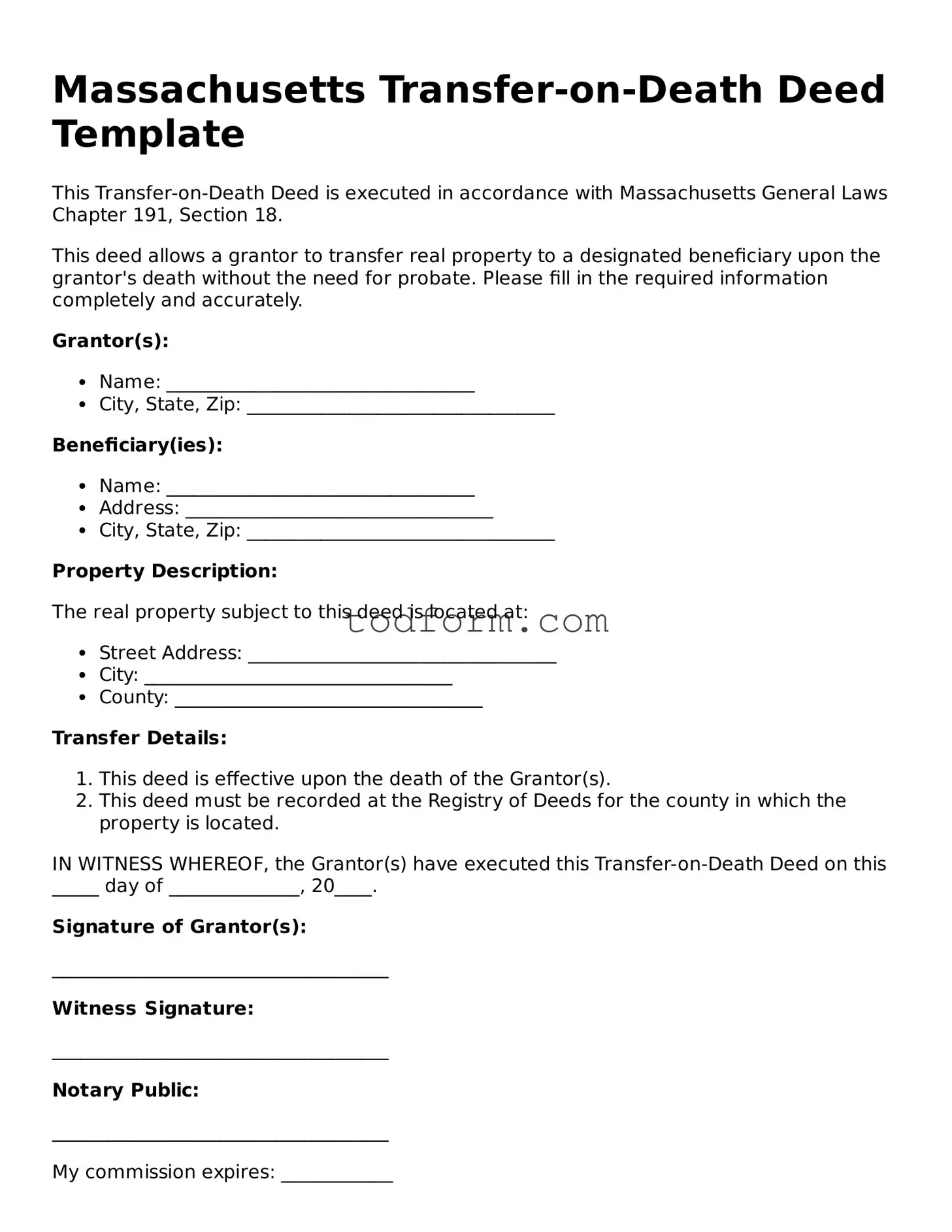Massachusetts Transfer-on-Death Deed Template
This Transfer-on-Death Deed is executed in accordance with Massachusetts General Laws Chapter 191, Section 18.
This deed allows a grantor to transfer real property to a designated beneficiary upon the grantor's death without the need for probate. Please fill in the required information completely and accurately.
Grantor(s):
- Name: _________________________________
- City, State, Zip: _________________________________
Beneficiary(ies):
- Name: _________________________________
- Address: _________________________________
- City, State, Zip: _________________________________
Property Description:
The real property subject to this deed is located at:
- Street Address: _________________________________
- City: _________________________________
- County: _________________________________
Transfer Details:
- This deed is effective upon the death of the Grantor(s).
- This deed must be recorded at the Registry of Deeds for the county in which the property is located.
IN WITNESS WHEREOF, the Grantor(s) have executed this Transfer-on-Death Deed on this _____ day of ______________, 20____.
Signature of Grantor(s):
____________________________________
Witness Signature:
____________________________________
Notary Public:
____________________________________
My commission expires: ____________
